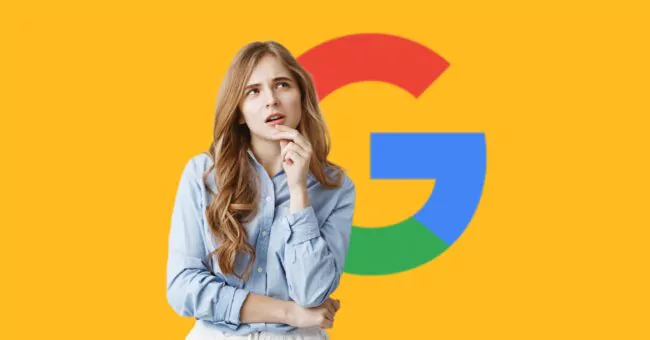Introduction
Running an eCommerce business requires a strong digital marketing strategy. Two of the most powerful advertising platforms are Google Ads and Facebook Ads. But which one delivers better results for eCommerce?
Both platforms offer unique advantages and can drive high ROI when used correctly. Google Ads help capture high-intent buyers actively searching for products, while Facebook Ads are excellent for brand awareness and audience targeting.
In this blog, we’ll compare Google Ads vs. Facebook Ads for eCommerce based on reach, targeting, cost, ROI, and conversion rates. Whether you want to hire experts for your campaigns, you can check services like Hire Digital Marketers to maximize your ad performance.
Google Ads for ECommerce
What Are Google Ads?
Google Ads is a pay-per-click (PPC) advertising platform where businesses bid on keywords to appear in Google search results, YouTube, Google Shopping, and the Display Network.
Benefits of Google Ads for ECommerce
- High Purchase Intent
- Users actively searching for a product are more likely to buy.
- Example: A user searching for “buy running shoes” is ready to purchase.
- Various Ad Formats
- Search Ads: Appear on Google’s search results pages.
- Shopping Ads: Show product images, prices, and store links.
- Display Ads: Banner ads on websites and apps.
- YouTube Ads: Video-based ads for brand promotion.
- Keyword-Based Targeting
- Reach potential customers actively searching for your products.
- Example: A Shopify store selling handmade jewelry can target “handmade silver rings” or “custom engagement rings.”
- Measurable Performance
- Google Ads provides detailed analytics on conversions, clicks, and return on ad spend (ROAS).
- Businesses can optimize ads based on real-time data.
- Scalability
- Can be scaled up quickly to reach global audiences.
Challenges of Google Ads for ECommerce
- Higher Competition & Costs
- Popular keywords can be expensive.
- CPC (Cost Per Click) varies based on industry.
- Requires Expertise
- Setting up and optimizing campaigns requires experience.
- Hiring a Google Ads Expert can improve results.
Facebook Ads for ECommerce
What Are Facebook Ads?
Facebook Ads (including Instagram Ads) allow businesses to create highly targeted ads based on demographics, interests, and behaviors rather than keyword searches.
Benefits of Facebook Ads for ECommerce
- Advanced Audience Targeting
- Reach users based on age, location, interests, past purchases, and online behavior.
- Example: A fitness apparel brand can target gym enthusiasts or those who recently searched for workout gear.
- Highly Engaging Ad Formats
- Image & Video Ads: Eye-catching visuals for brand storytelling.
- Carousel Ads: Showcase multiple products in one ad.
- Dynamic Ads: Automatically show relevant products based on user behavior.
- Lead Generation Ads: Collect user information directly.
- Strong Retargeting Capabilities
- Facebook Pixel allows businesses to retarget visitors who abandoned carts or engaged with previous ads.
- Cost-Effective for Awareness
- Generally, Facebook Ads have lower CPC than Google Ads.
- Ideal for brand awareness and top-of-the-funnel marketing.
- Better for Visual Products
- Great for eCommerce brands selling fashion, accessories, home decor, and gadgets.
Meta Ads Mastery: A Guide to Creating High-Converting Campaigns for Online Stores
 Challenges of Facebook Ads for ECommerce
Challenges of Facebook Ads for ECommerce
- Lower Purchase Intent
- Users on Facebook are not actively searching to buy.
- Requires a strong sales funnel to convert leads into buyers.
- Ad Fatigue
- Users may see the same ads too often, reducing effectiveness.
- Regularly updating creatives is necessary.
- Requires Continuous Testing
- Ad performance depends on A/B testing.
- Hiring experts like Facebook Ads Specialists can improve campaign success.
Google Ads vs. Facebook Ads: Key Comparisons
| Feature | Google Ads | Facebook Ads |
| Best For | High-intent buyers | Brand awareness & retargeting |
| Ad Placement | Search, Display, YouTube | Facebook, Instagram, Messenger |
| Targeting | Keywords | Demographics, Interests |
| Cost | Higher CPC | Lower CPC |
| Conversion Rate | Higher for direct purchases | Requires nurturing & retargeting |
| Ad Formats | Text, Shopping, Display, Video | Images, Videos, Carousels, Dynamic Ads |
| Tracking | Conversion tracking, keyword reports | Facebook Pixel, Audience Insights |
| Ease of Use | Requires expertise | User-friendly dashboard |
Which Platform Is Better for Your ECommerce Business?
- Use Google Ads if:
- Your goal is immediate conversions from search-based intent.
- You sell niche products that users actively search for.
- You have a high advertising budget for competitive keywords.
- Use Facebook Ads if:
- You want to build brand awareness and attract new audiences.
- Your product benefits from visual marketing (fashion, accessories, home decor).
- You want to retarget potential customers who visited your site but didn’t buy.
- Best Strategy? Combine Both
- Use Google Ads to capture high-intent buyers.
- Use Facebook Ads for brand awareness and retargeting.
The Power of Retargeting: Google Ads Tactics Every ECommerce Business Should Use
Conclusion
Both Google Ads and Facebook Ads are powerful tools for e-commerce businesses. The right platform depends on your goals, budget, and audience.
If you need expert help to set up or optimize your campaigns, consider hiring digital marketers to drive better results.
Got questions? Feel free to contact us for expert eCommerce marketing solutions!

I am Ashutosh – a seasoned digital marketer, bringing digital transformation to businesses, complementing businesses’ growth via generating qualified leads, drive site inbound traffic via organic and inorganic approach, & build their brands through useful, well-designed marketing strategies and Marketing Automation implementation via Chat GPT, HubSpot & Zoho.


 Challenges of Facebook Ads for ECommerce
Challenges of Facebook Ads for ECommerce


